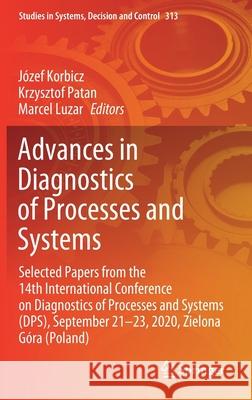Advances in Diagnostics of Processes and Systems: Selected Papers from the 14th International Conference on Diagnostics of Processes and Systems (Dps) » książka
topmenu
Advances in Diagnostics of Processes and Systems: Selected Papers from the 14th International Conference on Diagnostics of Processes and Systems (Dps)
ISBN-13: 9783030589639 / Angielski / Twarda / 2020 / 184 str.
Advances in Diagnostics of Processes and Systems: Selected Papers from the 14th International Conference on Diagnostics of Processes and Systems (Dps)
ISBN-13: 9783030589639 / Angielski / Twarda / 2020 / 184 str.
cena 403,47
(netto: 384,26 VAT: 5%)
Najniższa cena z 30 dni: 385,52
(netto: 384,26 VAT: 5%)
Najniższa cena z 30 dni: 385,52
Termin realizacji zamówienia:
ok. 16-18 dni roboczych.
ok. 16-18 dni roboczych.
Darmowa dostawa!
Kategorie:
Kategorie BISAC:
Wydawca:
Springer
Seria wydawnicza:
Język:
Angielski
ISBN-13:
9783030589639
Rok wydania:
2020
Wydanie:
2021
Numer serii:
000477984
Ilość stron:
184
Waga:
0.45 kg
Wymiary:
23.39 x 15.6 x 1.27
Oprawa:
Twarda
Wolumenów:
01
Dodatkowe informacje:
Wydanie ilustrowane











